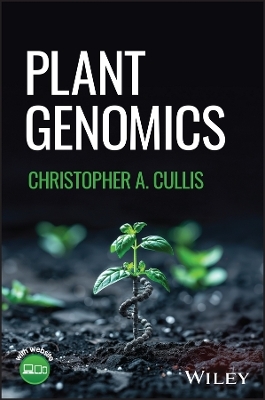
Plant Genomics
Seiten
2025
John Wiley & Sons Inc (Verlag)
978-1-394-21155-5 (ISBN)
John Wiley & Sons Inc (Verlag)
978-1-394-21155-5 (ISBN)
- Noch nicht erschienen (ca. Januar 2025)
- Versandkostenfrei innerhalb Deutschlands
- Auch auf Rechnung
- Verfügbarkeit in der Filiale vor Ort prüfen
- Artikel merken
Introduction to the range of molecular techniques to investigate unique facets of plant growth, development, and responses to the environment
Plant Genomics introduces the complex relationship between the genome, microbiome, genes, and epigenetics of plants, as well as the range of molecular techniques applicable to investigating the unique facets of plant growth, development, and response to the environment. State-of-the-art science in the field is discussed, as well as future outlooks on what the next decade is likely to bring.
This book includes new techniques for modifying the plant genome and their impact on modifying plants to combat the impact of biotic and abiotic stresses, including those associated with climate change, new technologies including long and short read sequencing and proximity ligation and the combination of these technologies for assembling sequence data into chromosomes, a new chapter on the sequences of the chloroplast and mitochondrial genomes, and a dedicated chapter to epigenetics and the importance in gene regulation.
Written by a highly qualified author with significant published research contributions to the field, Plant Genomics includes information on:
Structure and information content of the chloroplast and mitochondrial genomes and their use in phylogeny
Use of transcriptomes from various tissues to identify expressed sequences and their identification as genes
Function of small regulatory RNAs and long non-coding RNAs and involvement of small RNAs in the control of gene expression
Epigenetic silencing of transposable elements and their release by stress and cross-generational contribution of epigenetic variation
Use of the pan-genome to assemble a comprehensive germplasm for a particular crop species
Plant Genomics is an ideal textbook for undergraduate courses on plant biology, particularly those focusing on molecular descriptions, and a helpful auxiliary text to plant biology laboratory courses. It will also be of interest to students in plant molecular biology, agricultural and food sciences, and plant, food, and crop bioengineering.
Plant Genomics introduces the complex relationship between the genome, microbiome, genes, and epigenetics of plants, as well as the range of molecular techniques applicable to investigating the unique facets of plant growth, development, and response to the environment. State-of-the-art science in the field is discussed, as well as future outlooks on what the next decade is likely to bring.
This book includes new techniques for modifying the plant genome and their impact on modifying plants to combat the impact of biotic and abiotic stresses, including those associated with climate change, new technologies including long and short read sequencing and proximity ligation and the combination of these technologies for assembling sequence data into chromosomes, a new chapter on the sequences of the chloroplast and mitochondrial genomes, and a dedicated chapter to epigenetics and the importance in gene regulation.
Written by a highly qualified author with significant published research contributions to the field, Plant Genomics includes information on:
Structure and information content of the chloroplast and mitochondrial genomes and their use in phylogeny
Use of transcriptomes from various tissues to identify expressed sequences and their identification as genes
Function of small regulatory RNAs and long non-coding RNAs and involvement of small RNAs in the control of gene expression
Epigenetic silencing of transposable elements and their release by stress and cross-generational contribution of epigenetic variation
Use of the pan-genome to assemble a comprehensive germplasm for a particular crop species
Plant Genomics is an ideal textbook for undergraduate courses on plant biology, particularly those focusing on molecular descriptions, and a helpful auxiliary text to plant biology laboratory courses. It will also be of interest to students in plant molecular biology, agricultural and food sciences, and plant, food, and crop bioengineering.
Christopher Cullis is the Francis Hobart Herrick Professor of Biology at Case Western Reserve University, an AAAS Fellow, and a Life Fellow of the Ohio Academy of Sciences. In addition to directing an MS in Biotechnology Entrepreneurship program from 2002 to 2023, he was instrumental in setting up the Society for International Bioenterprise Education and Research (SIBER) and incorporating it as a 503C3. He has published on the genomics of more than 20 plant species.
| Erscheint lt. Verlag | 23.1.2025 |
|---|---|
| Verlagsort | New York |
| Sprache | englisch |
| Themenwelt | Naturwissenschaften |
| ISBN-10 | 1-394-21155-4 / 1394211554 |
| ISBN-13 | 978-1-394-21155-5 / 9781394211555 |
| Zustand | Neuware |
| Informationen gemäß Produktsicherheitsverordnung (GPSR) | |
| Haben Sie eine Frage zum Produkt? |
Mehr entdecken
aus dem Bereich
aus dem Bereich
Eine kurze Geschichte | Über die Regeln unseres Lebens
Buch | Hardcover (2023)
Suhrkamp (Verlag)
34,00 €


